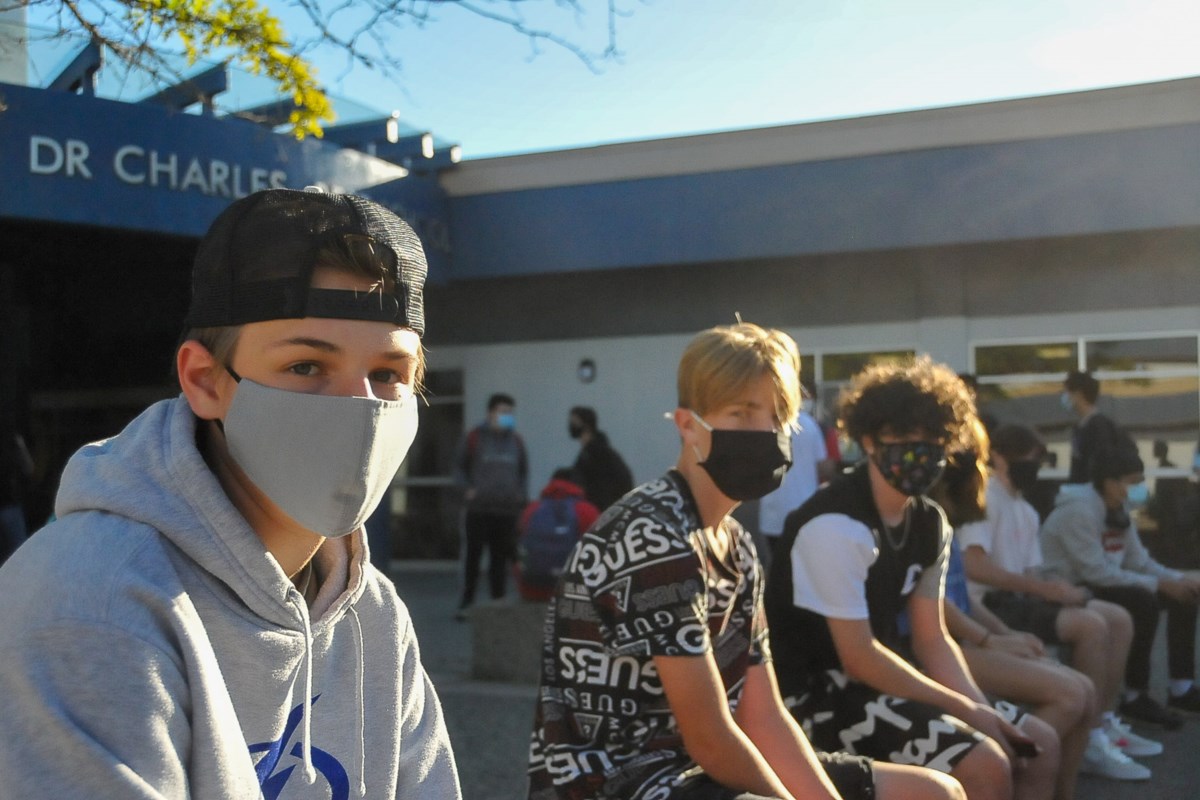
A B.C. doctor specializing in the treatment of children says families have many options to help protect themselves from respiratory diseases as the school year begins.
Dr. David Goldfarb, a pediatric infectious disease physician and medical microbiologist at BC Children’s Hospital, said there are signs that an active influenza season in Australia this year could repeat itself here.
“It's not a very clear crystal ball, but it gives us some hints as to what we might see this year — and they did see a fair bit of influenza-b this year, and that can sometimes preferentially affect children compared to other influenza strains.”
The good news: flu vaccines (as soon as they are available this fall) cover you for that strain.
In the meantime, all the old personal hygiene practices honed through three years of pandemic apply — wash your hands regularly, carry and use hand sanitizer, sneeze into your elbow or a tissue, stay home when you’re sick, and if you choose to do so, feel free to wear a mask.
“With the pandemic, we've got more used to masking, and that now certainly is an option for people to have another layer of protection and should be a choice that would be respected if somebody would want to do that, including at school,” said the doctor.
“We don't recommend for kids under two years of age though.”
What do I need to know about BA.2.86?
The BA.2.86 variant of the Omicron strain was identified this week in a person from the Fraser Health region who hadn't recently been outside the province.
Dr. Brian Conway, an infectious diseases specialist and medical director of the Vancouver Infectious Diseases Centre, said the variant has likely been in circulation for weeks if not months.
"It's the evolution of COVID," he said. "It doesn't surprise me."
Conway said BA.2.86 may not cause more severe illness but transmits more easily than other strains of the disease.
"That's why new variants emerge and take over, they just crowd out the old variant," he said.
Provincial health officer Dr. Bonnie Henry and Minister of Health Adrian Dix said in a joint statement that there doesn't seem to be increased severity with the strain and the infected individual is not in hospital.
The U.S. Centers for Disease Control says the new strain may be more capable of infecting people who have previously had COVID-19 or have received COVID-19 vaccines, compared to previous strains.
The World Health Organization says it's monitoring the variant due to its large number of mutations. It was first detected in Denmark on July 24, and has since turned up in Israel, South Africa, Britain and the U.S.
Goldfarb says it's not clear how new strains like EG.5 and BA.2.86 will magnify the effects of various influenza strains and respiratory syncytial virus (RSV) this year.
Describing it as "unprecedented," the doctor said last year was a particularly bad year for RSV, a childhood respiratory illness that usually causes mild illness but can become more serious.
What about vaccines?
COVID-19 boosters are currently available in B.C. for anyone over six months. Goldfarb recommends adults who don’t have any pre-existing conditions or a comprised immune system wait for a new COVID-19 booster that will target the prevailing strains and is due out later this fall.
“I certainly would recommend that all children that are school age have their primary series against COVID-19,” he said. “That's another way to help ensure that they stay protected during the season.”
Through the pandemic, childhood vaccines rates in B.C. and around the world dropped. But Goldfarb says that gap has since largely been closed in B.C. Still, he says, the start of school is always a good time to check you and your family’s vaccination status.
He pointed to the BC Children’s Hospital's Back-to-School Wellness Toolkit, which offers tips and resources to guide families toward good emotional, mental and physical health.
Goldfarb says there’s a chance this year could resemble a “more normal” respiratory season but that he and his colleagues are planning for a significant number of patients suffering from a respiratory disease.
“COVID-19 is always a more of an unknown,” he said. “We don't have the decades' worth of experience that we do with other respiratory viruses and knowing how it might behave.”
“Obviously, we would hope that children would experience a more normal school year — and same for parents.”
With files from the Canadian Press.
B.C. pediatrician gives back-to-school advice on respiratory diseases - Times Colonist
Read More

No comments:
Post a Comment